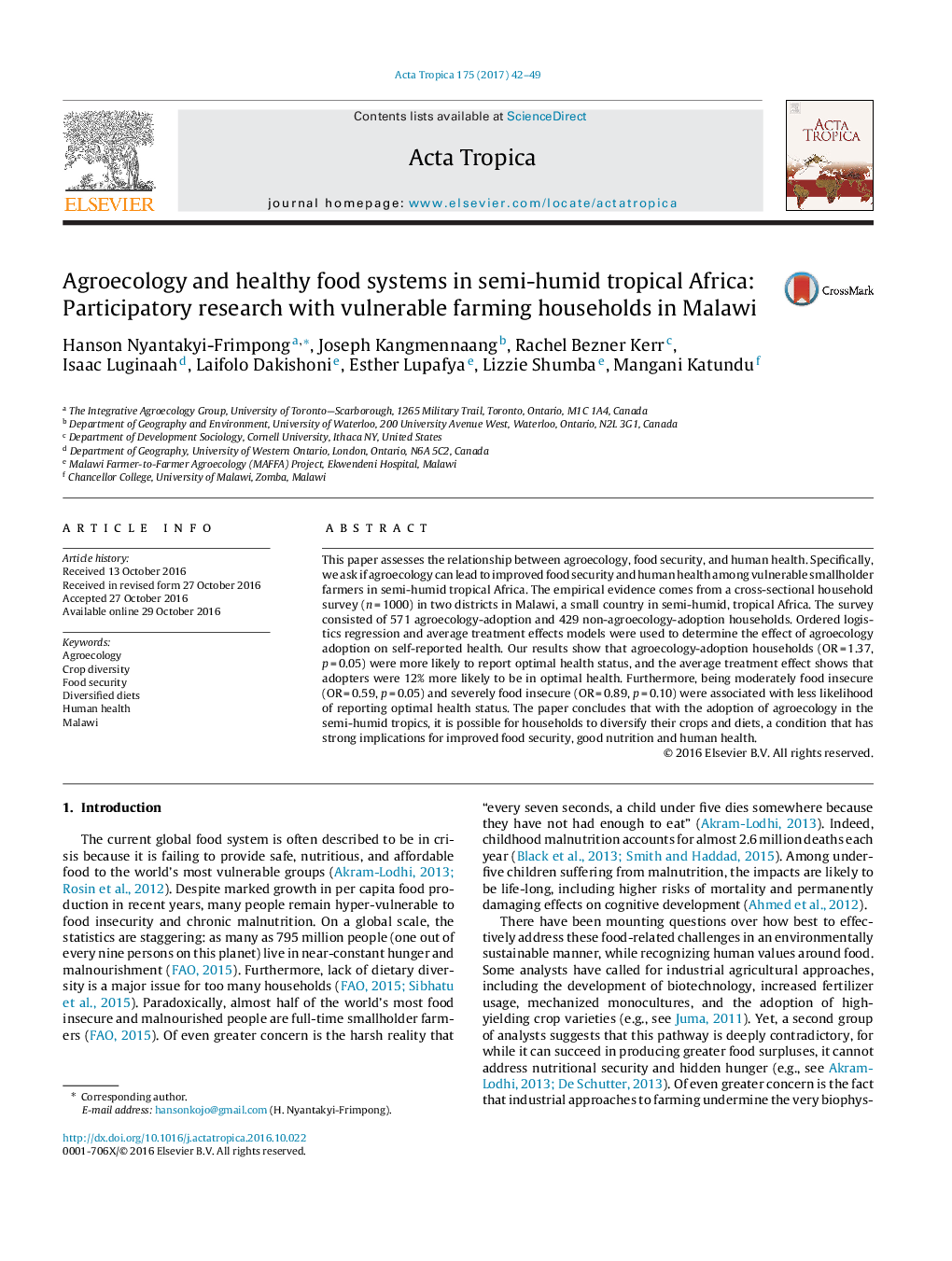| Article ID | Journal | Published Year | Pages | File Type |
|---|---|---|---|---|
| 5670738 | Acta Tropica | 2017 | 8 Pages |
This paper assesses the relationship between agroecology, food security, and human health. Specifically, we ask if agroecology can lead to improved food security and human health among vulnerable smallholder farmers in semi-humid tropical Africa. The empirical evidence comes from a cross-sectional household survey (n = 1000) in two districts in Malawi, a small country in semi-humid, tropical Africa. The survey consisted of 571 agroecology-adoption and 429 non-agroecology-adoption households. Ordered logistics regression and average treatment effects models were used to determine the effect of agroecology adoption on self-reported health. Our results show that agroecology-adoption households (OR = 1.37, p = 0.05) were more likely to report optimal health status, and the average treatment effect shows that adopters were 12% more likely to be in optimal health. Furthermore, being moderately food insecure (OR = 0.59, p = 0.05) and severely food insecure (OR = 0.89, p = 0.10) were associated with less likelihood of reporting optimal health status. The paper concludes that with the adoption of agroecology in the semi-humid tropics, it is possible for households to diversify their crops and diets, a condition that has strong implications for improved food security, good nutrition and human health.
